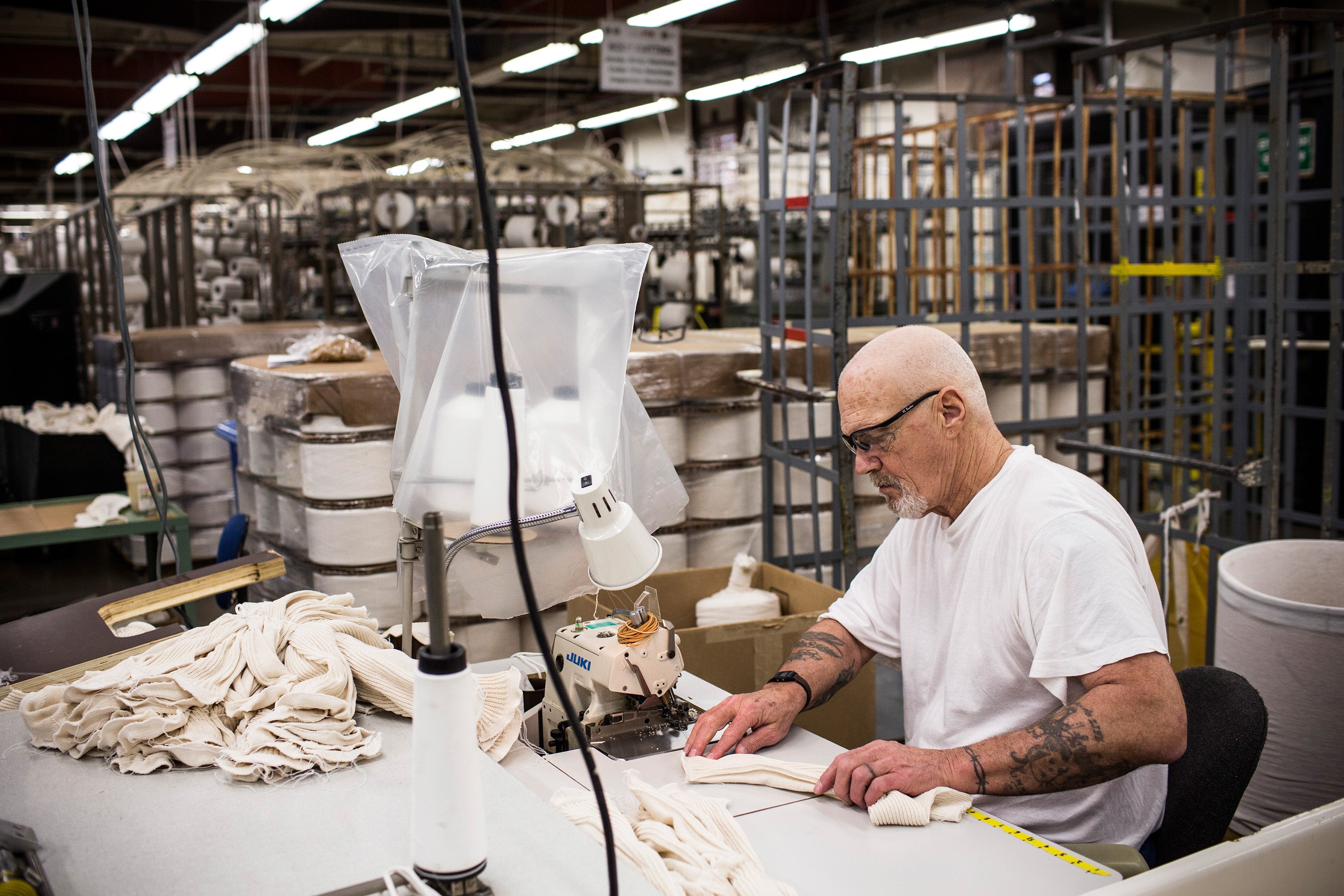Californians may vote to keep forced prison labor, despite little open support for it
Lower-than-expected support for proposition comes as multiple California cities looked set to oust progressive district attorneys
Your support helps us to tell the story
From reproductive rights to climate change to Big Tech, The Independent is on the ground when the story is developing. Whether it's investigating the financials of Elon Musk's pro-Trump PAC or producing our latest documentary, 'The A Word', which shines a light on the American women fighting for reproductive rights, we know how important it is to parse out the facts from the messaging.
At such a critical moment in US history, we need reporters on the ground. Your donation allows us to keep sending journalists to speak to both sides of the story.
The Independent is trusted by Americans across the entire political spectrum. And unlike many other quality news outlets, we choose not to lock Americans out of our reporting and analysis with paywalls. We believe quality journalism should be available to everyone, paid for by those who can afford it.
Your support makes all the difference.California voters unexpectedly look set to reject a proposed constitutional amendment that would end involuntary labor in state prisons, despite the proposition facing little public opposition and coming to the ballot with strong support from state leaders.
As of Wednesday evening, nearly 55 percent of voters were in support of rejecting the amendment, compared with just over 45 percent in favor of supporting it, with over half of the estimated vote total reported, according to The New York Times.
The lack of enthusiasm comes as something of a surprise in deep-blue California.
Prop 6 was put on the ballot with a two-thirds vote of the state legislature. It has the support of the state’s Democratic Party and its reparations task force, as well as major labor unions and Karen Bass, the mayor of Los Angeles.
Other states, including far more conservative ones like Alabama and Tennessee, have outlawed the practice, which critics argue amounts to modern-day slavery. Just sixteen states allow inmates to be forced to perform labor as a condition of their incarceration.
In the state’s voter guide, usually thick with contrasting arguments from different interest groups, no one even submitted a public case against Prop 6.

And yet, drill down a bit deeper, and there were some signs state voters weren’t fully onboard with progressive criminal justice priorities.
Voters decisively passed Prop 36. which would increase sentences for some theft and drug possession offenses.
In high-profile local races, citizens unseated George Gascón in Los Angeles, one of the country’s most progressive district attorneys, in favor of an independent, and also looked set to remove Pamela Price, district attorney of the Bay Area’s Alameda County, home to Oakland.
This has some observers fearing the Golden State’s voters are growing more receptive to tough-on-crime policies that drive mass incarceration but do little to actually decrease instances of crime, or at least that voters are losing their appetite for the kinds of restorative justice and non-carceral solutions that briefly rose in prominence after the 2020 racial justice uprisings.
“I think the narrative around Prop. 6 got swept into the fear politics that are driving the return to mass incarceration and the tough-on-crime era,” State Assemblyman Isaac Bryan, vice chair of the California Legislative Black Caucus, told the Times.
The concerns around crime come as California has experienced relatively low crime compared with historic peaks from the 1980s and ‘90s.
On the national level, the country also appears to be favoring a less left-leaning stance on criminal justice and public safety issues.
Kamala Harris, a former prosecutor and U.S. senator for California was trounced in the presidential election, where both candidates tried to play up their public safety bonafides on issues like the U.S.-Mexico border.

Join our commenting forum
Join thought-provoking conversations, follow other Independent readers and see their replies
Comments